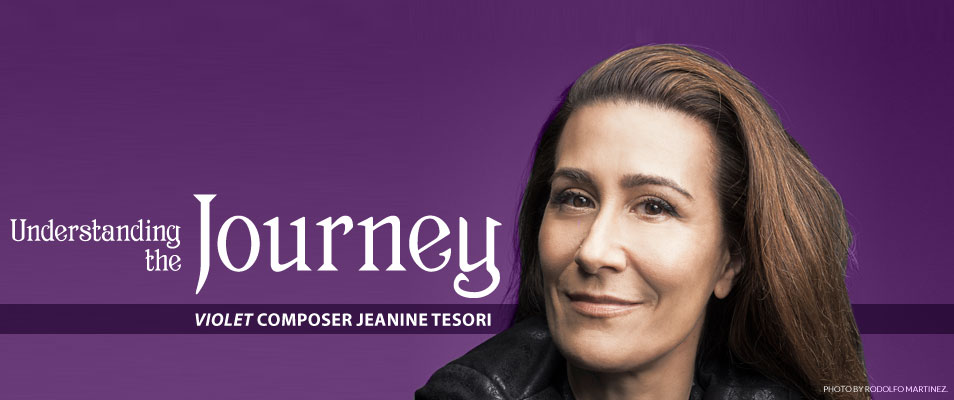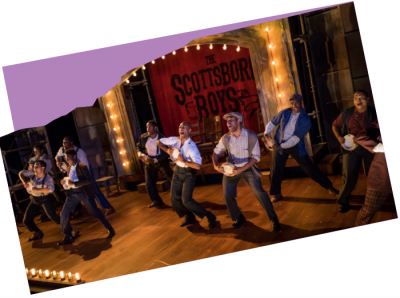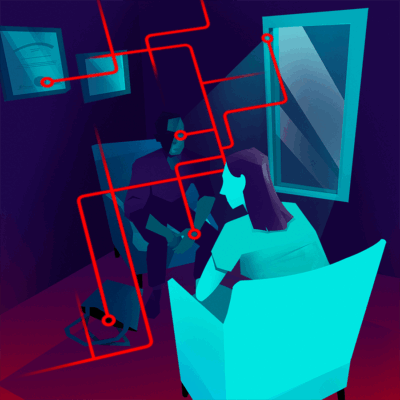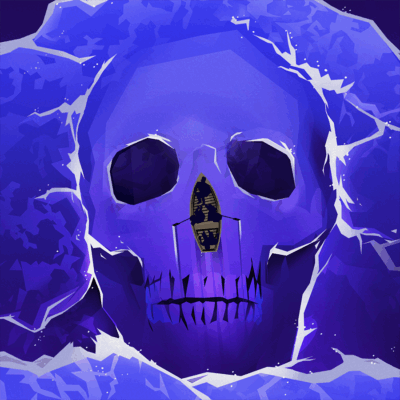Your donation sets the stage for a new season of Boston's most intimate, entertaining and provocative plays and musicals. Our shows make powerful connections with our audiences-- and they are only possible because of you.
Jeanine Tesori


Jeanine Tesori
Jeanine Tesori is the Tony-winning composer of five Broadway musicals, including Fun Home; Shrek The Musical; Thoroughly Modern Millie; Caroline, or Change; and Violet. She is the creative director and co-founder (with Idina Menzel) of A Broader Way Foundation, an immersive arts education program for girls from underserved communities of New York City. She is also the Founding Artistic Director of Encores! Off-Center at New York City Center and is a lecturer in Music at Yale University.
Where you were born, where you were educated, and how did you come to be a composer?
I was born on Long Island in Manhasset and grew up in Port Washington. I went to the public school system there. I started playing piano at three and started writing songs at five. I played classically until age 14 and then I gave it up for a while and played sports during high school. I went to Barnard College and started studying pre-med. I switched over to the music course at Columbia because Barnard didn’t have a music major, and I graduated in 1983. During that time, I rediscovered music and theatre, which I really knew very little about. I started conducting, did some dance arrangements, and played for dance rehearsals and auditions. I pretty much left conducting in order to write Violet. This is the first show that I wrote as a full-time writer.
You first encountered the source material for Violet as a film—correct?
Yes, Showtime broadcast a short live-action film version of it. It was directed by Shelley Levinson and won an Academy Award. It must have been around ‘85 that I saw it. They were running it and Didi Conn was in it. I remember thinking, “That’s interesting, I’ve never seen that before,” and then I just kept it in the back of my mind. Later on, when I was looking for something to write, I researched the source material with my business/producing partner at the time, Buryl Red. We found the short story and then found Doris Betts, the author, and the pieces fell into place.
When you approached Doris Betts, was she open to your idea?
Oh, no, not at all. She didn’t have any anger or attitude about musicals, but she just didn’t see this piece becoming a musical, and I saw it so clearly. So it took a little bit of doing and finagling to get her to agree.
What made you think that these characters should sing?
I love quest stories, and they’re hard to pull off on stage. I love the character of Violet. I love how she’s described in the short story. It was really the short story that convinced me that it should be a musical — her internal life and the way that she thought was so unusual.
I read that you did a lot of research about different types of music in order to compose the score.
I think there’s a bit of a musicologist in me. I just love knowing how cultures make music. I went to Beale Street in Memphis, went through their archives, went to a lot of healing services, talked to people who were snake handlers. I spent a lot of time with the musicians down in Nashville, and we threw ideas around about how things might sound—a lot of those people were my friends anyway, so it wasn’t a stretch.
Didn’t you have to make substantial changes to the short story when you musicalized it?
We weren’t intent on making changes. In fact, we were trying to honor the short story. As we were writing it, Brian Crawley, the librettist and lyricist, and I noticed that it was veering in a different way. Doris was very nervous about it, but when she came up to see it, she said it made complete sense to her. That has been my experience with writers who are alive when you adapt their material. They feel very protective of their material, as protective as I would be of my own. Alison Bechdel, who is the author of the source material for Fun Home, was looking at some things on stage and she said, “I don’t know if that happened but it could have.” She didn’t know what the truth was and what the fiction was, because she thought we had burrowed so deeply inside the psychology of her family that it could have happened. And I think that’s what happened with Doris. She thanked us and said, “When you’re fleshing out the story with singing, [the changes] absolutely make sense.”
You truly have covered so many musical theatre styles in your work. The difference among Fun Home; Caroline, or Change; Violet; Shrek; and Thoroughly Modern Mille—it’s as if you’re five different people. What happens to you when you start to write?
I try to understand what’s logical for the character, for the people assembled onstage. What their world sounds like, what their soundscape is like, and I think different people have different styles. Mine is to go to them and figure out what part of me I can access that is the same as what they have inside them. There are things that I just wouldn’t be able to write because I can’t find myself in it. My training is so unbelievably eclectic. My first teacher, Richard Benda, introduced me to all different types of music and then I studied world music for years: I traveled to China, I studied African percussion. I went into the deep listening mode of producing world music, which means I had to mix them layer by layer, track by track. I worked with pop players, gospel players, jazz players, front-porch players, players from Ghana, Mexico, and Peru. I got this unbelievable graduate lesson in how and why these players make music. What the history of their music was. I think the combination of the classical teaching, playing a lot of different types of music, creating lead sheets in all different types of keys, plus the world music producing gave me the ability and desire to write in a certain kind of way.
Do you remember the most challenging part of writing Violet?
I think the most challenging part was that I had really never done anything like it before. I’d written a variety show and one other show based on Galileo. I had very little to draw upon in my own experience. It was hard to not know how the system worked in New York City as a composer. Not knowing about the way the show would travel or not travel was challenging. Now I know that anything can happen or not happen. It’s usually not on the timeline that you think it’s going to be on, and you just have to keep working. The writing of Violet was not as much of a challenge as not understanding the journey of it.
How did you decide that it would play better as a one-act?
When Brian and I were first writing, it was a one-act, and it was always intended to be a one-act, which is why I was really happy to return to the form. We always felt like the journey should just keep going.
If I were to ask you what is the musical Violet about—how would you answer?
I think that’s a tough question because it’s very hard to reduce something without diminishing it. There are great pieces that are not just about one thing. It’s about many things: beauty, the journey of life, looking at life as a bus ride whether you’re driving or you’re a passenger. I write a lot of father-daughter stories. Violet is one of those and Fun Home was one. That relationship is very interesting to me, as my own relationship with my dad was very complicated, and I keep trying to figure it out by writing stories about it.
Reprinted with permission from the Roundabout Theatre Company Blog. Interview conducted by Roundabout Education Dramaturg Ted Sod and posted on March 25, 2014 prior to the opening of Violet on Broadway.
 Past Productions
Past Productions JOB
JOB The Antiquities
The Antiquities Swept Away
Swept Away




